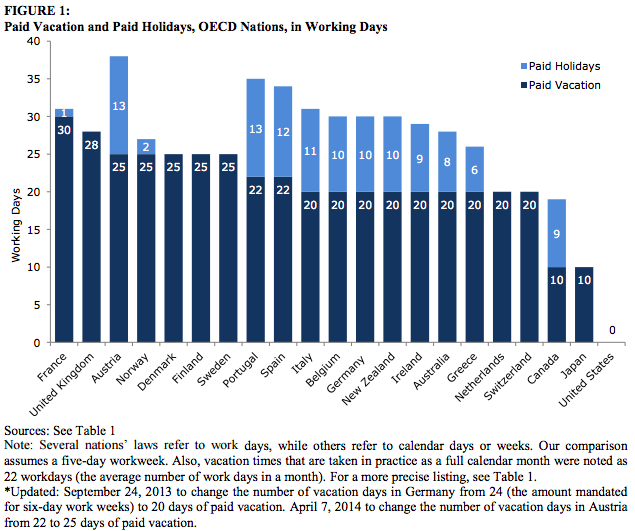There's One Major Problem with Labor Day

By:
Labor Day is supposed to be a day to celebrate the national workforce, a federal holiday on the first Monday of September where people recognize the social and economic achievements of America's workers. For many, it has become a time to lounge, grill, relax, and remove ourselves from the daily work grind, whatever that particular grind might be. But as with every other holiday that involves a "long" weekend, Labor Day has also become a consumerist opportunity, with retailers competing for customers who have some extra time to shop.
What started as a way to honor workers in the late 19th century has become a parody of the American labor movement. Businesses that do not offer paid holiday time often exploit the occasion to boost profits. It comes at the confluence of back-to-school and travel season, driving the first wave of sales before Christmas shopping takes full effect. The irony of Labor Day is not lost on laborers, however, millions of whom will be working on Monday—in many cases for even longer hours than usual. Data from Bloomberg BNA indicates that 39 percent of employers keep operations open on Labor Day and require some employees to report to work.
When Congress passed legislation making Labor Day a national holiday in 1894, it was for good reason. The unionization of the American workforce, advanced in large part by the Central Labor Union and the Knights of Labor, had pushed the plight of industry workers in this country into focus, and by the time that the measure made its way to Congress, 30 states had already established Labor Day as an official holiday.
But now the country's workforce seems to have accepted (which is not to say embraced) the fact that many employees will spend Labor Day behind a cash register or desk, working long hours for no additional pay. It is not unique to this holiday, of course; paid holiday time is hard to come by in America. According to the Labor Department, more than 25 million U.S. workers do not get any paid holiday time, and more than 22 million do not get paid vacation time at their job. That's almost 1-in-4 Americans who do not get paid time off.
"The United States stands alone among the rich nations of the world, in not requiring any paid days off for its workers," Dean Baker and Helene Jorgensen, economists at the Center for Economic and Policy Research, wrote. "The rest of the industrialized world has sought to ensure some amount of leisure for their workers, with shorter workweeks and longer vacations. But, the United States has gone in the opposite direction, as average annual hours of work have increased slightly over the last two decades."
Asked about why the U.S. seems to have gotten away from the original meaning of Labor Day, Baker told ATTN: that he thinks "this is due to the asymmetry in the power of corporations and unions."
"Corporations don't like people to realize that many of the gains of ordinary workers came about because unions fought for them," he added. "Unions have tried to fight against this and teach people labor history, but they have very limited resources with which to do this. It is a very uphill battle for them."
A 2013 study, "No Vacation Nation Revisited," looked at international labor trends and found, in essence, that the U.S. stands out for its terrible workplace vacation and holiday policies. The federal government has consistently declined to mandate paid days off for official holidays, and among those who will have to work on Labor Day, the vast majority will be low-wage workers.
 Center for Economic and Policy Research - cepr.net
Center for Economic and Policy Research - cepr.net
Only 50 percent of low-wage workers have any paid vacation, whereas approximately 90 percent of high-wage workers do. The same trend holds when it comes to part-time workers, only 35 percent of whom get paid time off compared to 91 percent of full-timers.
"Most workers cannot afford to take unpaid vacation," Baker said. "And, it is important for people to have some time off from work to spend with their family, to travel, or just to relax. While some people really enjoy their jobs, many don't, and in either case, workers need some time off."
"Congress had intended national holidays to be special days, ideally celebrated with friends and family," Baker and Jorgensen wrote, citing the Department of Labor's own statement on the upcoming holiday, which reads as follows: "The vital force of labor added materially to the highest standard of living and the greatest production the world has ever known and has brought us closer to the realization of our traditional ideals of economic and political democracy. It is appropriate, therefore, that the nation pay tribute on Labor Day to the creator of so much of the nation's strength, freedom, and leadership—the American worker."
"These words would have more meaning if workers could count on getting the day off," the economists concluded.
